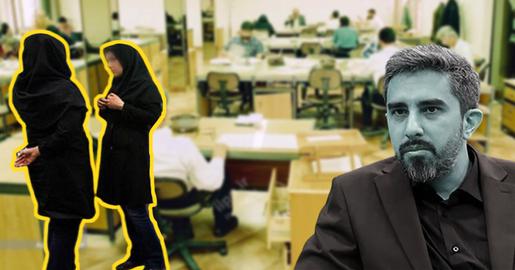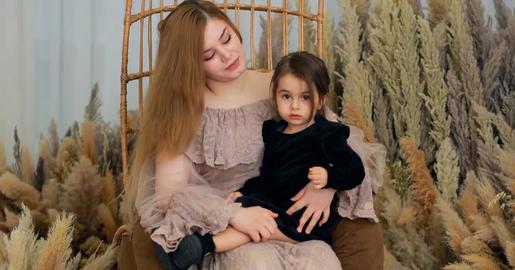As President Hassan Rouhani gets set to take the stage at the United Nations General Assembly today, there has been widespread speculation about what he will say. How will he handle the most pressing issues affecting Iran and the world today, from Islamic State terrorism to nuclear negotiations?
IranWire asked experts: what would you like Iran’s leader to say when he addresses world leaders and the international public tomorrow?
And what will he actually say?
Sadegh Zibakalam: Writer, Political Analyst and Tehran University professor:
“I hope he doesn’t talk like Ahmadinejad.”
I would like Mr. Rouhani to avoid using harsh, violent and revolutionary language when he delivers his speech at the United Nations. I would like him to avoid the tone that Mr. Ahmadinejad used to employ. I do not want him to pit Iran against others, or give a lecture about ethics and morality. He should distance himself from radical and hardliner rhetoric, talk softly and ask for friendship. He should avoid hackneyed phrases like “we will not be aggressors against other countries but if our country is the victim of aggression we will make them pay dearly for it.” Instead he should talk about mutual understanding and empathy and about how the scourge of extremism in the region can be overcome. I would like him to extend a hand of friendship towards other countries and powers.
But what will he actually say?
I am pretty sure that he won’t talk like Mr. Ahmadinejad, but I guess he won’t exactly use soft tones. Probably it will be somewhere in between. He’ll say that those who want to bring Iran to its knees are mistaken, that this nation will stand up to military threats. Some of this rhetoric will be because Mr. Rouhani does not want to antagonize fundamentalists, hardliner or not. He probably thinks that he has solid steadfast supporters and it’s time for him to try to win over fundamentalists as well. Of course, in my view, he will have no standing among fundamentalists no matter what he does. The fundamentalists’ favorites are Ahmadinejad and Saeed Jalili [former chief nuclear negotiator] — not Mr. Rouhani, who studied in England. So I hope he doesn’t make the mistake of talking in a violent, inflammatory way to gain popularity among fundamentalists.
Mohammad-Ali Abtahi: Theologian, Pro-Democracy Activist and a former vice president:
“I hope he will say that the name of Islam has been taken hostage.”
I hope Mr. Rouhani’s speech at the UN will contribute to the process of lifting sanctions against Iran and the restoration of peace throughout the Middle East, especially for Iraq and Syria. I hope he can secure the help of the international community to solve these problems and that after his speech Iranian people can have a better life. I hope that terrorism in the region can be crushed. I am a cleric, so I hope Mr. Rouhani will say that the name of Islam has been taken hostage.
What will he actually talk about?
I believe that Rouhani will actually talk about Islamic extremism in the Middle East, as well as sanctions, which have made the lives of Iranian people very difficult. If he does not, people will be very unhappy, and those who voted for him will have their hopes dashed.
Nasrin Sotoudeh, Human Rights Lawyer and Activist:
“I hope Rouhani does not forget human rights.”
I would like Mr. Rouhani to talk about human rights. I hope his speech will provide an opening for the freedom of political prisoners. I would like to hear words about the immunity of lawyers in Iran — about how to ensure this immunity and how to protect them from the kind of persecution they have suffered over the past few years. Like most Iranians, I also hope that nuclear negotiations with the West come to a satisfactory conclusion so we can use our capital for more necessary purposes.
What do you expect he’ll say?
He’ll mention nuclear negotiations. Beyond that, I cannot guess what he will say to the United Nations.
Mohammad Javad Akbarin, Religious Scholar and Journalist:
“I hope he will be realistic and positive.”
When we talk about our expectations from Mr. Rouhani’s speech at the United Nations we must distinguish between three different audiences— ourselves, the regime in Iran and the representatives of the international community at the UN. We, and his immediate audience, have common expectations (but of course different interests). We want Mr. Rouhani to focus on ending Iran’s political isolation and on lifting the economic sanctions. We want him to turn a more friendly face towards the world and not issue threats. In other words, we do not want him to behave in the customary manner of Islamic Republic authorities. We want him to try to build Iran’s reputation, and not build that reputation on the rejection of others and trying to close borders, something for which the people of Iran will have to pay later. He should be realistic, positive and take into account the actual capabilities of his country. There are words that might be true, but that should not be uttered if nothing can be done about what they address. Talking this way will only help to discredit him and create further problems — for the president, for the country, for his people.
What will he actually say?
You might say that Rouhani is a diplomat, that he is not Ahmadinejad and of course he will behave accordingly and take this into consideration. But the Supreme Leader and the hardliners have such high expectations, believing that the president is going into battle, that his only option is to issue challenges. I think he cannot ignore this. He must adopt a revolutionary posture at least somewhere in his speech.
Reza Alijani, Journalist and Political Activist:
“Forgive, and thou shall be forgiven.”
More than anything else, I wish for a freely-elected Iranian president to address the UN. But, anyway, at the moment, Mr. Rouhani is there, speaking as the president of Iran. I wish he would offer a critique of Iranians before criticizing the world. “Forgive, and thou shall be forgiven,” says Jesus. So first we must confess to our own mistakes and then judge the world. Then we will be more effective.
When we talk about the injustice done to Palestinians we should also talk about the Jewish people and the historical disaster that they have suffered. If we talk about the Syrian civil war and Syrian refugees we must also talk about the shortcomings of the Syrian regime.
I wish Mr. Rouhani would talk about stopping uranium enrichment within the framework of current negotiations. He can then save Iran by ending sanctions. Yes, having nuclear energy is an indisputable right, but the deception going on in Iran will not only not save the country, it will make it fall behind for ever. This is the wrong kind of investment and the country is paying a high price for it.
What will he actually say?
I think he will talk about moderation, extremism in the region, Islamic State and its brutality, and against the excesses of Israel in Gaza. I think in his second address to the UN, the president will say: “We will not give up our legitimate right to nuclear energy and we cannot be intimidated.” He might also talk about human values, and say that Iranians will accept a reasonable, legitimate argument or agreement.
There is no doubt that, relative to the aggressive rhetoric of former President Mahmoud Ahmadinejad, Mr. Rouhani’s rhetoric can lead to healthier interactions with the world.
Hassan Yousefi Eshkevari, Cleric, Religious Scholar and Reformist Journalist:
“He should tell the world what he is going to do for Iran.”
I’d like Mr. Rouhani to tell the world what he is going to do for Iran. His foreign policy is rather clear and, over the past year, it has been relatively successful. All Iranians and people of the world know what foreign policy line he is following. His domestic economic policy is more or less known, but what are his policies in regards to domestic politics and culture? What are the bottlenecks? At the very least he can tell people why he has not done anything about them and why the situation is even worse than before. Has his policies failed or have his opponents have sabotaged them? He has not said a word about them in his interviews, either in Iranian or international media.
I do not expect him to present an exposé about the domestic situation at the United Nations because we have no good memories of exposés. But he should talk about politics and culture. Political and cultural pressures in Iran are increasing day by day; so are executions and arrests.
What is he likely to say?
It is more or less clear what he is going to say. As he has for the last year, he will talk in general terms. He will continue the same pretty and polished speech that he delivered last year. But last year he warned about the dangers of extremism. Now that the situation in Iraq and Syria is fraught with danger (with Islamic State victories and other events), he will be more assertive and demanding. Probably he will put across ways to combat extremism — not a bad thing.
Unlike most other statesmen in the world, who give a short speech and present concise and clear views, he will issue the usual general statements about world politics, his own foreign policy and about hoping that nuclear negotiations will succeed soon and result in easing of tensions with the world. In other words, he will repeat what he has said about foreign policy over the past year, but he will not say anything clear or specific about his domestic policy.
Morteza Kazemian, Journalist and Political Analyst:
“I wish he would talk about the water crisis.”
Of course there’s a huge distance between what the supporters of democracy and human rights in Iran wish for and the reality in which Rouhani functions. From this point of view — I mean, if I adopt a realistic approach to his speech — I hope Mr. Rouhani stays away from generalities and slogans and talks about the water crisis in Iran and in the region and the need to cooperate with regional countries to confront the worsening crisis.
But what do you think he will talk about?
Probably he will talk about Islamic State, religious extremism in the region, the nuclear crisis, efforts to tear down the walls of mistrust between the Islamic Republic and the West, and improving political and security relations with Arab countries.
Hossein Ahmadi Niaz, Lawyer:
“He should talk about establishing relations with the US”
Rouhani was elected by the popular vote and considering the socio-economic situation in Iran, international and regional conditions and the imperatives of a cost-benefit analysis, he should act to establish relations with the United States. Establishing such a relation would benefit Iran and the goals of his administration.
This would have many advantages for the country. Lack of diplomatic relations is what heightens mistrust between Iran and the US. And the current situation in the Middle East makes conversation and interactions between the two countries more necessary. The Islamic State phenomenon and the fight against it demand it.
On the other hand, the US must accept Iran’s peaceful nuclear program. Thirty-five years without diplomatic relations is enough and continuing this would hurt Iranian interests.
What is he going to talk about?
He will talk against violence and the Islamic State phenomenon. He will talk about nuclear negotiations and interactions with other countries. He will invite them to invest in Iran. He will also talk about sanctions and the necessity of lifting them.




























comments